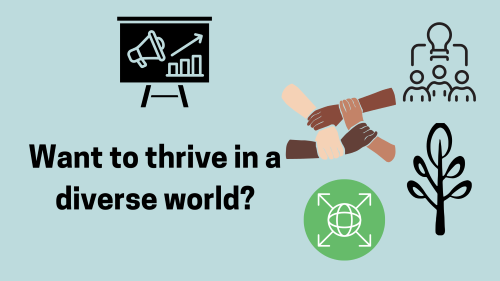
- Fundamentals of Cultural Awareness in Emotional Intelligence
- Improving personal and professional relationships
- Improving global capacity and adaptability
- Contribute to personal development and global citizenship.
- Challenges of Cultural Differences
- Strategies to promote culture
In today’s global society, cultural awareness is not only an asset but also a necessity for people who want to thrive in diversity. These important aspects of emotional intelligence allow us to navigate the complexities of different cultures with grace and understanding. By cultivating culture, we unlock the potential for personal connections, professional opportunities, and a deeper appreciation of the world’s greatest cultural mosaic.
Introduction
As the world moves closer to us, the ability to work well across cultural boundaries has become important. Cultural awareness, an important part of emotional intelligence, allows us to approach these interactions with sensitivity, empathy, and understanding. This article explains the importance of cultural awareness in emotional intelligence and its implications for effectively managing a diverse world.
Fundamentals of Cultural Awareness in Emotional Intelligence
Emotional intelligence (EQ) is understanding, using, and managing our emotions effectively. Cultural exposure enriches EQ by providing the context necessary to interpret and respond to emotions in cultural contexts. It involves identifying characteristics, values, and symbols that influence emotions and understanding.
Improving personal and professional relationships
Cultural awareness facilitates deep relationships that allow us to communicate effectively and empathize with people from different backgrounds. In a professional environment, this ability can lead to stronger collaboration, conflict resolution, and a more inclusive work culture, ultimately contributing to greater success.
Improving global capacity and adaptability
The ability to adapt to a changing world and respond to different cultural needs is important. Culturally literate people can manage these changes seamlessly, making them useful in international trade, diplomacy, and multiculturalism. This adaptability opens the door to unique opportunities and experiences around the world.
Contribute to personal development and global citizenship
Participating in different cultures challenges our thinking and encourages growth. It broadens our horizons, reduces prejudice, and promotes global citizenship. By embracing other cultures, we enrich our lives and contribute to a more harmonious and understanding world.
Challenges of Cultural Differences
Cultural differences can provide several difficulties, particularly in settings that are varied and multicultural. Gaining knowledge and comprehension of these difficulties is essential for promoting successful cross-cultural communication and healthy relationships.
- Barriers to Communication
- Stereotypes & Misconceptions
- Implicit Cultural Bias
- Barriers to Communication
Communication difficulties resulting from cultural differences may take many forms, including language limitations, nonverbal cues, and disparate communication styles. Gestures or expressions can be misinterpreted, which might hinder relationship and communication building.
Stereotypes & Misconceptions
Cultural differences can contribute to misinterpretations and the perpetuation of stereotypes. Biased impressions resulting from preconceived beliefs about other cultures might impede sincere communication and cooperation.
Implicit Cultural Bias:
Unconscious racial bias has the power to shape attitudes and actions toward people from diverse cultural origins. It takes self-awareness and deliberate attempts to embrace cultural diversity to overcome implicit bias.
Strategies to promote culture
• Individual study:
Actively learning about different cultures through literature, media, travel, and direct participation.
• Practice careful listening:
Listen carefully and clearly to understand the cultural nuances in communication.
• Be aware of your biases:
Acknowledge and address your biases to overcome cultural barriers.
• Seek diverse experiences:
Embrace opportunities to interact with people from different cultures to expand your worldview.
• Developing Empathy:
Developing the ability to see the world from the perspective of others and developing deep empathy.
Conclusion
Cultural awareness is the cornerstone of emotional intelligence in our diverse world. By developing these important skills, people can improve their relationships, professional success, and growth.
As we face various cultural challenges, let us embrace the concept of culture with an open heart and mind, knowing that it is a path of understanding, integration, and unity in our increasingly. Interconnected world. Thanks to Strength and determination, we can move forward together in this diverse world, Enjoying rich cultural works that enrich the human experience.
